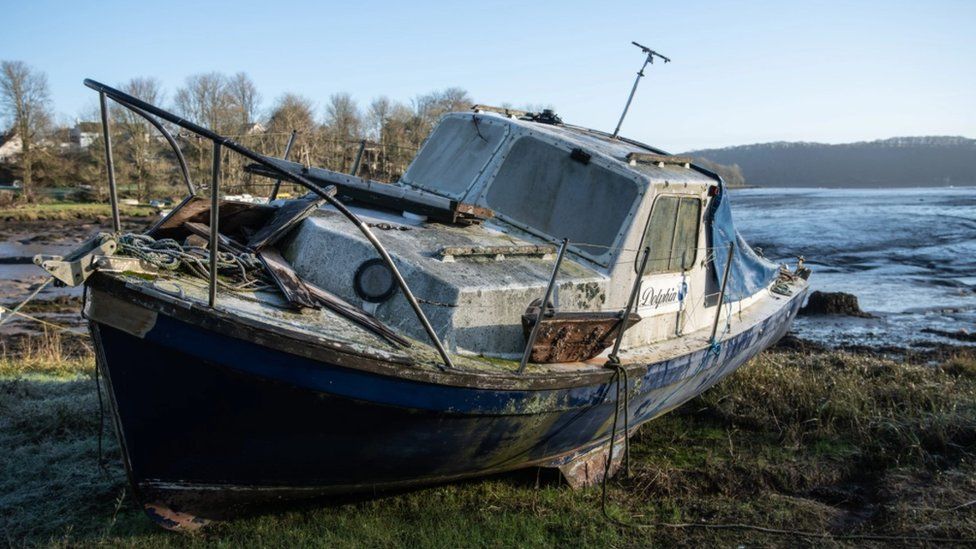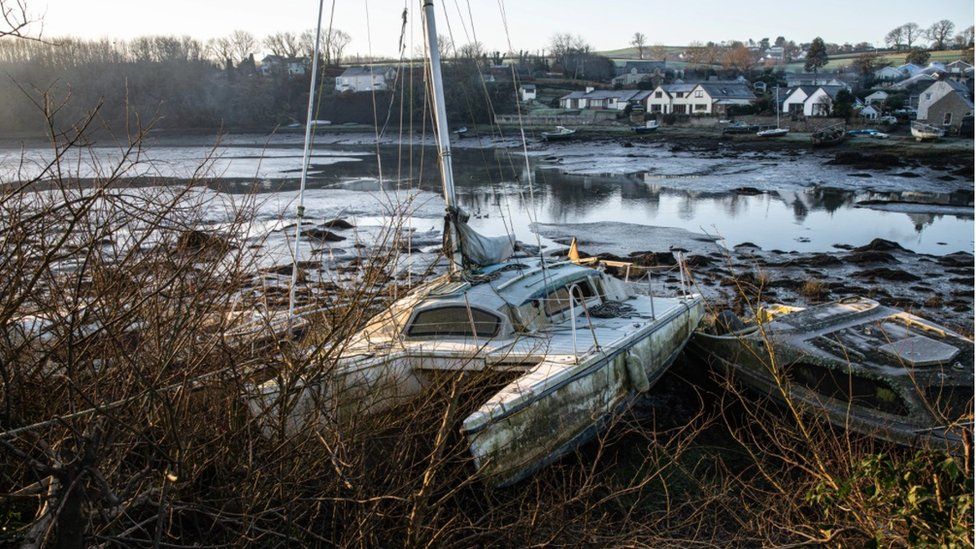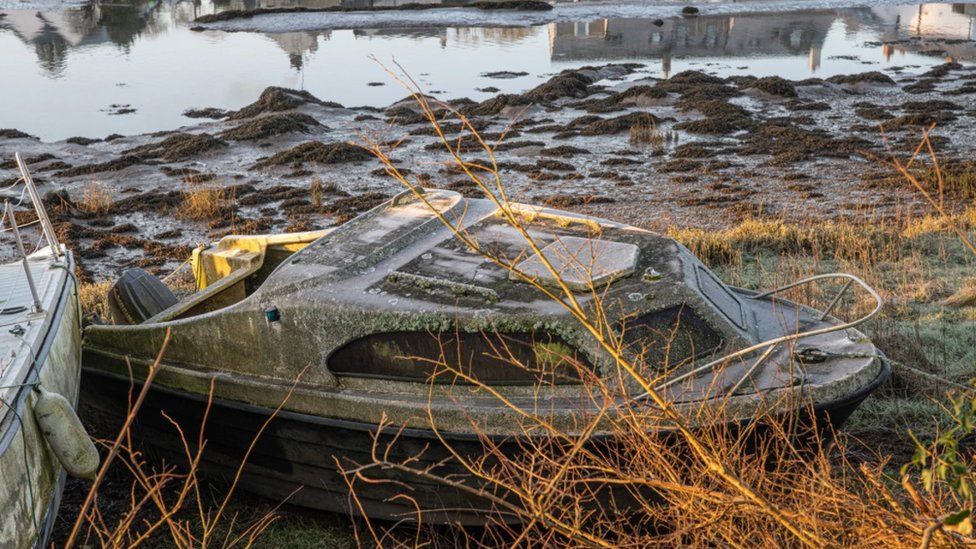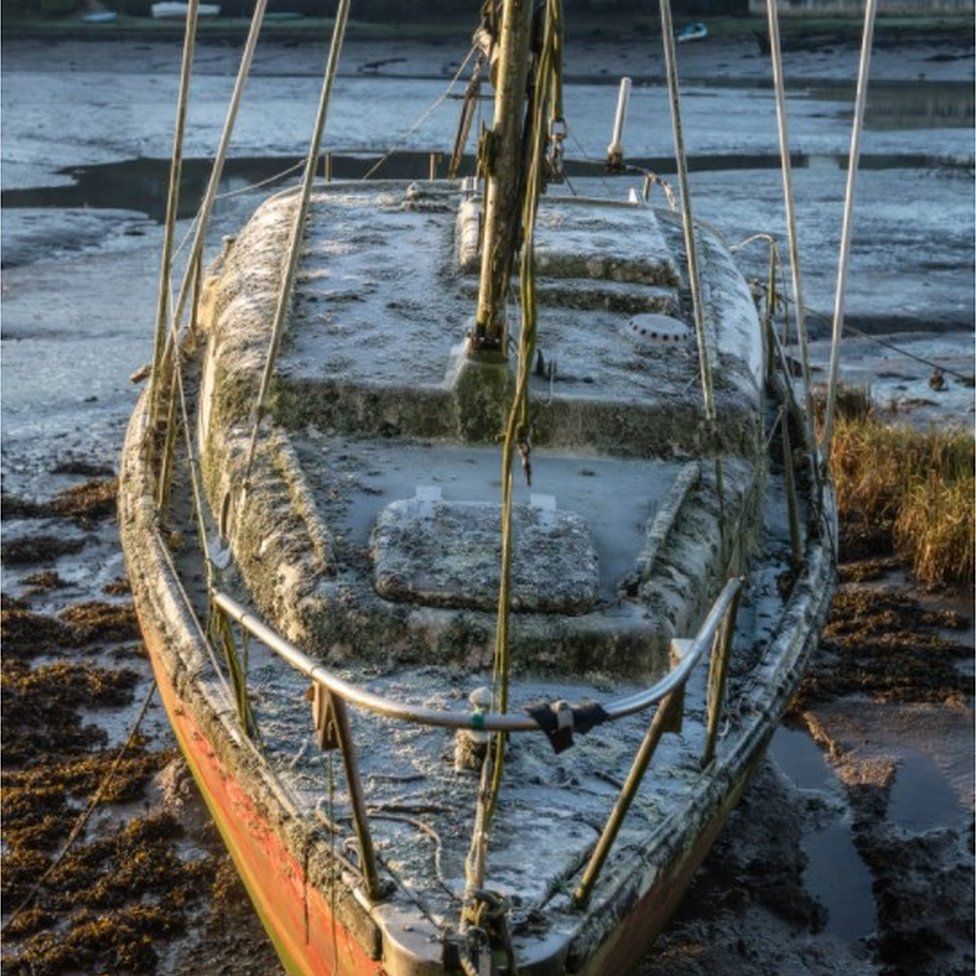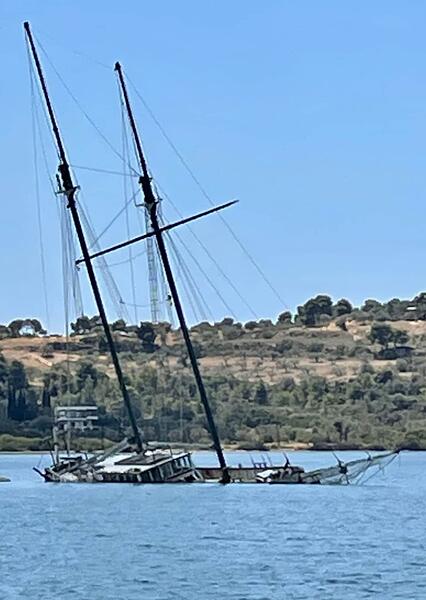There are estimated to be about 1,000,000 of all types in the UK, including kayaks, with it costing more than £3,000 to scrap larger vessels. It has led to warnings of a “tidal wave of abandonments”, which could devastate marine life. Huge quantities"of tiny fibreglass shards used to make boats have been found in oysters and mussels.
Natural Resources Wales (NRW) said a lack of end-of-life regulation and disposal costs can lead to boats being dumped, and it was looking at ways to tackle the problem.
The Department for Environment, Food and Rural Affairs (Defra) said it would be working with other countries to map the scale of the issue and develop guidance to improve the problem.
There are currently no end-of-life boat regulations in the same way as there is legislation for cars
Paddleboards and surfboards containing fibreglass are also currently unrecyclable and could pose a danger to marine life if dumped.
Dismantling boats can be a very complicated process, involving getting rid of oils, chemicals and plastics, before you even get to the hull - layers of polyester resin that can be mixed with balsa wood and foam.
Luke Edney of Boatbreakers, one of the UK’s few disposal firms, believes there could be “tidal wave of abandonments” in the next 15 years.
“There are too many boats and not enough people, and they are unrecyclable at the moment,” he said.
End-of life-vehicle regulations mean people may get £50 for scrapping a car - but Mr Edney said getting rid of a boat will cost about £100-per-foot, meaning £3,000 for a 30ft (9m) vessel.
The £5,000-a-year fee to leave a 25ft (7.5m) yacht in some harbours is also a cost some people are reluctant to pay for an ageing boat.
The demographic of people with boats is usually men aged 45 and up, meaning often people get too old to use them.
I
During the pandemic, many boats were left for up to two yearsWhile those on canals are regulated, he described it as a “free for all” on the coast, suggesting a tax every time a boat is bought or sold as a possible solution to fund recycling.
Boatbreakers has more than 30,000 Facebook followers who it sells parts to, but only “scratches the surface” on what needs to be dealt with.
Truro Harbour Authority in Cornwall spent £75,000 disposing of an old fishing boat and £50,000 getting rid of another.
In Pembrokeshire, the local authority said it had no involvement in dealing with boats, while in Llangwm, councillors were unsure about ownership of those left in the area.
There are a couple of boat-dumps on the river near me - there used to be a few dozen but now there are a hundred or more - unsightly, dangerous and roped off by the local council … ![]()

